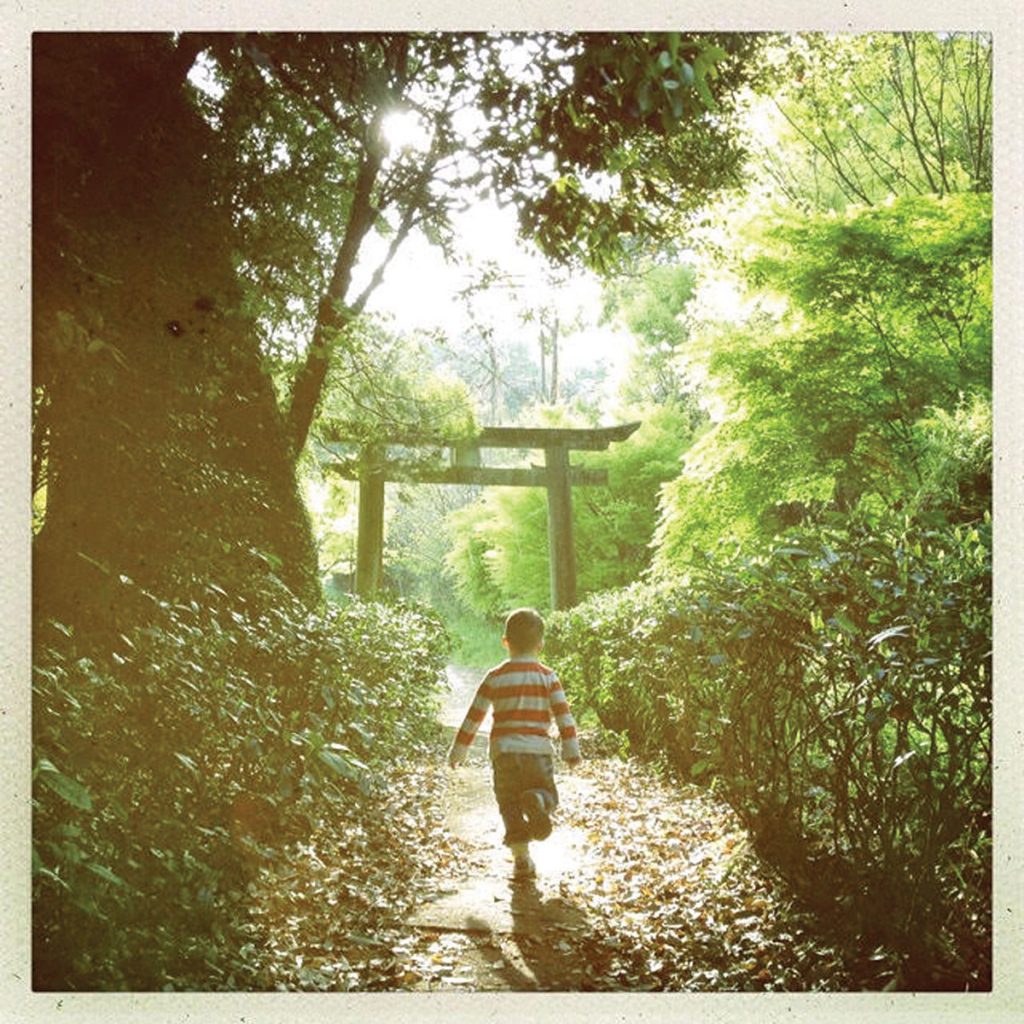Over the summer holiday, my son became bilingual.
That’s probably not technically correct, but that’s certainly my experience of what happened. We flew to the United States in August—our first family trip home in three years—and then, after about a week and a half, Boy started speaking English. Fluently.
Anyone observing our son in his current Japanese context would assume him to be a native speaker of English. Old women passing us on the streets in our neighborhood frequently gasp at his Day-Glo pale skin, his somber cuteness. Some lean in close, pat his head, and try out a few phrases, thinking perhaps this will put him at ease: Hello? Name? How old?
These words are gifts. I know the women are trying to be generous—they are being generous—but it is always exactly the wrong thing to say. He clutches at my legs, refuses to speak, his gaze falling to his shoes.
Often, he doesn’t know what is being said or asked of him. After all, Mama and Papa’s English doesn’t sound like that. “He speaks Japanese,” I explain again and again. “He goes to day care here.” The conversation is always a lost cause from that point on, though. Those kindly old women must think it’s very sweet that I think my boy speaks Japanese.
If pressed, my husband and I would say our son’s first word was “moon”—he screamed “mooooooo!!!” every time that glowing orb appeared in the pages of a picture book, or in the night sky outside his window. But he was saying a lot before that—a garbled mess of nonsense baby talk, or “babbling,” according to the experts. One day, our friend Naomi visited us, and we realized that she understood him.
Koun, my husband, is a translator and an interpreter—and I know enough Japanese to get by in my day-to-day life in Kumamoto—but only Naomi could hear through the mush-mouthed sound that was his first attempt at language: aru (it exists) and nai (it doesn’t exist), the two most essential verbs in the Japanese language.
After that, we started really hearing him, too. There was cho-cho (butterfly), itai (It hurts!), koko (here), iya da (No/I don’t like it!), densha (train), and wanwan (doggie). And then for a time it was mostly just densha, screamed with gusto, over and over, at every possible opportunity, even just at the thought of one.
I know that children’s language skills pick up dramatically in the second year of life. It’s a developmental fact. But I will always wonder when, exactly, this transition from not having to having began for my son. We don’t know because we couldn’t hear him.
After we had returned from our holiday to the United States, Boy had become, for me, an entirely new person. I knew him—deeply knew him—as a person who spoke primarily Japanese, save for a few English words thrown in here and there to fill in missing concepts.
And now I know him as an English speaker almost exclusively—so much so that I often forget that Japanese self of his. I forget that it is there, always, that it is a real and true part of him. And so, I am sometimes shocked into recognition by little things—how he becomes Japanese the moment we enter the gates of his day care center, how he brags to the pizza delivery man about his own superfast motorbike, how he happily chats away to the lady up the street who brings us vegetables from her garden.
Inside the boundaries of our home, I often don’t see my Japanese boy. But sometimes he comes out in a word, a phrase, a mannerism. Occasionally, he turns entirely into his other self. The other day, my husband asked Boy how to say something in Japanese—I don’t remember the word now—but it was a trigger. He was Japanese until bedtime, and the next day, he awoke in English.
What is my son’s authentic self? I think this is what a person might ask if they’d never spent time immersed in another language or culture. It must be hard to believe that a person can truly be more than one person—and not have some kind of serious mental disorder. I think in the West, especially, we want to say a person is like this, or a person is like that. But that can’t tell the whole story.
I have come to understand, sometimes grudgingly, that we are many people, depending on our contexts, on our relationships. I know, for example, that there is a kind of core nature to myself—a set of ethics and patterns that I tend to work from—but who I am at home is probably not exactly who I am at work; who I am talking to my husband is not who I am writing this. And that doesn’t make the concept of me any less authentic in any of those instances. They are all me. And that goes for my kids too. Now our daughter is edging toward 2, toward that magical linguistic window.
We’re not certain this time either, but we think her first word was nai—“It doesn’t exist.”
♦
From Lotus Petals in the Snow: Voices of Canadian Buddhist Women, edited by Tanya McGinnity. Reprinted with permission of The Sumeru Press, www.sumeru-books.com. Copyright 2016 by the author.
Thank you for subscribing to Tricycle! As a nonprofit, we depend on readers like you to keep Buddhist teachings and practices widely available.
